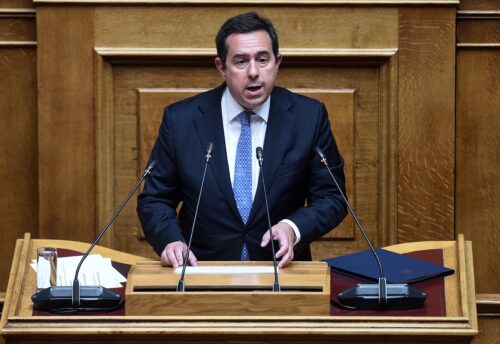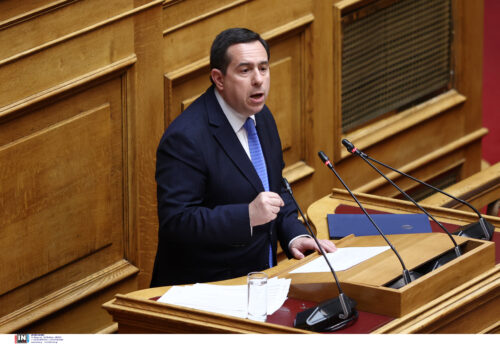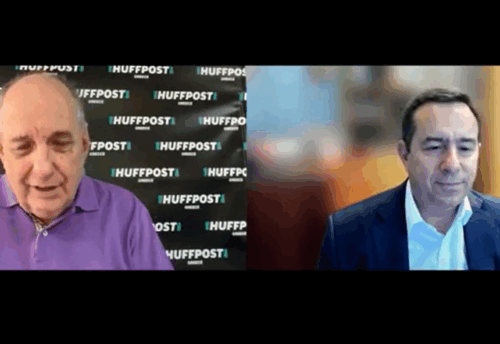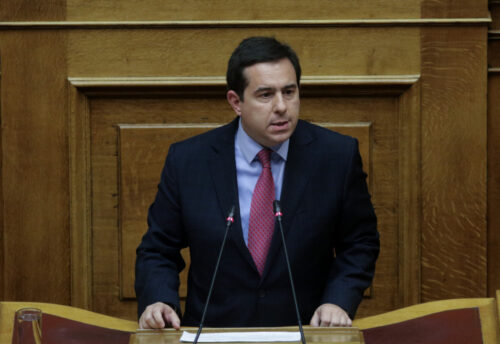The reforms will not be easy
Athens News: Hope is a key word in ND’s pre-election campaign. What hope can your offer to a country which is in its fifth consecutive year of recession and faces spiralling unemployment?
Notis Mitarakis: As you rightly noted, Greece has now entered the fifth consecutive year of recession and most analysts predict at least another, a sixth, to come. Following five years of recession, the Greek economy has shrunk by 18 percent. Despite considerable sacrifices by the Greek people, the programme has failed to meet its own targets.
Greece now needs growth-enhancing measures, alongside efforts for fiscal consolidation and structural reforms. We need to keep the young people in the country.
Obviously these reforms are not easy. There are many gaps in productivity and competitiveness – such as the structure of the economy, which discourages investments and businesses growth; a large public sector; a narrow use of human resources etc.
The new government should increase the attractiveness of Greece as an investment destination in order to give hope and confidence to the people. We need to become business-friendly. To achieve that, we need to focus on three main targets.
First of all, we have to restructure the public sector, increasing what the markets would call “return on capital employed”. Emphasis should be given on improving efficiency by simply asking “How much money are we spending?’’, why, where and what is the return on our investment. To achieve that, we need to implement the zero-based budget approach. Secondly, the state has the obligation to protect society, especially people who are in need. Today we are experiencing a sudden social disintegration and an increase in poverty.
Thirdly, we should focus our efforts on economic development, by attracting investment and increasing productivity and competitiveness. Economic development in Greece needs to be sustainable in order for the next generation to have a hope for a better future.
As government, would you take any measures to ease the burden of heavily indebted citizens and businesses who cannot repay their bank loans?
We need to recognise that the environment has rapidly changed. Incomes have deteriorated, while the tax burden has increased. In such conditions, banks need to make more extensive loan restructurings. We have proposed that repayments do not exceed 30 percent of household income.
We also need to support small businesses. Increasing liquidity needs to be a priority. Now solvent companies go out of business for lack of liquidity. As a priority, the government should pay back all internal debts and negotiate funding. The economy needs the immediate payment of internal state obligations, either in cash or by setoffs. The lack of liquidity is also adversely affecting the privatisation programme.
Evangelos Venizelos, while serving as finance minister, said that the equivalent measures ND promises to introduce as replacement for the memorandum ones are unrealistic, citing as example Samaras’ inability to plug a 325m euro gap in extra budget savings, during negotiations with the troika in February.
We made a specific proposal that Pasok did not accept. In these elections it is important to view problems in an objective way, to face facts and carefully examine the evidence before making the next decision. Samaras has proposed equivalent measures to cover the “gap” of 325 million, such as the taxation in gambling rather than further reducing wages and pensions.
As the most recent finance minister, Venizelos didn’t implement the mandatory fiscal reforms and didn’t increase the revenues either. So going forward, the new plan for Greece needs to be both credible in its design and implemented without delay. Unfortunately, there is no time to lose.
What are the first growth-enhancing measures that ND plans to vote on, if elected in government?
In the last two years we have seen numerous changes, a very unstable environment and higher tax rates. However, despite the current high tax rates, revenue declines and the deficit remains stubbornly high.
Needless to say, tax evasion cannot be addressed in such an environment. To combat tax evasion effectively, we need attractive rates and modern tools combined with a simple and stable tax system. We proposed a corporate flat rate tax of 15 percent. We also need simplicity of regulatory processes, to improve the country’s competitiveness.
The result of these changes would be to increase government revenues. Our purpose is to restart the economy. Also, we have to take advantage of the European Regional Development Funds (NSRF, or ESPA, in Greek), to enhance capital repatriation and minimise state arrears to suppliers. Moreover we need to emphasise liquidity, economic and political stability, security and social cohesion.







